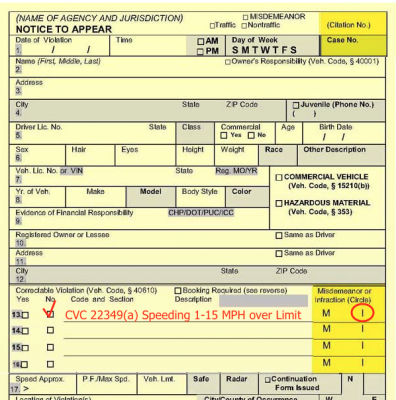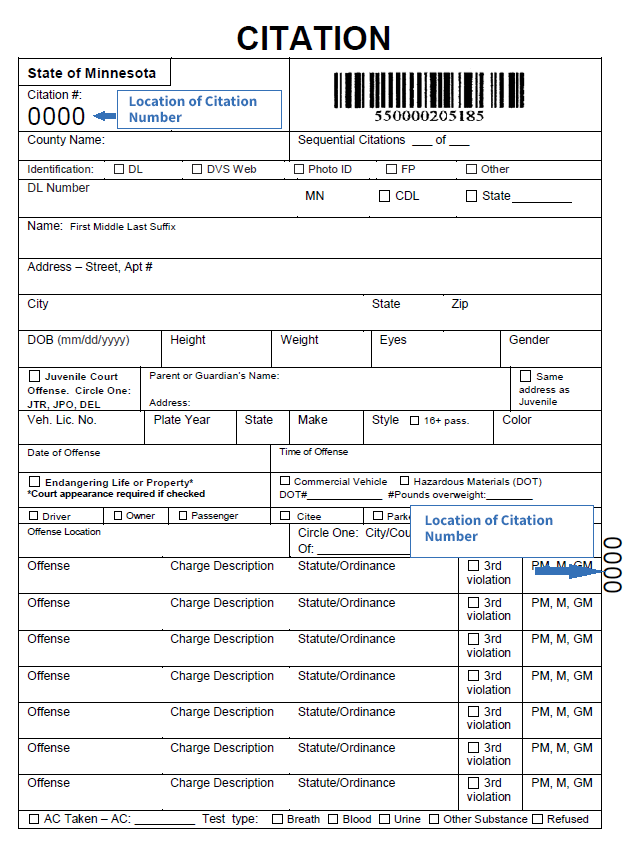Is a Citation a Ticket? Understanding Traffic Violations
A citation and a ticket might seem similar. But, they are not the same.
When you see flashing lights in your rearview mirror, you might worry about the consequences. Are you getting a ticket or a citation? Both terms can confuse many drivers. Understanding the difference can help you handle the situation better. In this post, we’ll explore what each term means and how they impact you.
Knowing the difference can save you stress and help you respond correctly. Whether it’s a minor issue or a more serious violation, clarity is key. So, let’s dive into the details and clear up the confusion.
Traffic Violations Overview
A citation is often considered a ticket. It serves as a notice that you’ve violated traffic laws. Citations can lead to fines or court appearances.
Types Of Violations
Traffic violations come in many forms. Speeding is a common one. Running a red light is another. Some drivers ignore stop signs. Parking in a no-parking zone is also a violation. Each type has its own consequences. Some are minor. Others are more serious.
Common Misconceptions
Many people confuse citations and tickets. A citation is not always a ticket. A ticket usually means a fine. A citation can be a warning. Both are records of breaking traffic laws. Not all citations require payment. Some just need a court visit. It’s important to understand the difference.

Credit: www.ticketsnipers.com
What Is A Citation?
A citation is a notice from the police. It tells you that you broke a law. You must take action. This can be paying a fine or going to court. Citations are common for traffic violations.
There are many examples of citations. Here are a few:
- Speeding
- Running a red light
- Illegal parking
- Not wearing a seatbelt
What Is A Ticket?
A ticket is a document issued by an authority. It shows that a person has broken a rule. Most often, it is given by police for traffic violations. The ticket tells you what rule you broke. It also tells you the fine you need to pay. Sometimes, it may require you to appear in court.
There are many types of tickets. Here are some common ones:
- Speeding ticket
- Parking ticket
- Running a red light
- Driving without a seatbelt
- Using a phone while driving
Differences Between Citations And Tickets
A citation is a notice. It tells you that you broke a law. A ticket is a type of citation. Tickets need you to pay a fine. Citations can be warnings. No fine, just a note.
Getting a ticket can affect your driving record. It can also raise your insurance rates. Warnings do not have these effects. Tickets may need you to go to court. You might need to take a driving course.
Similarities Between Citations And Tickets
A citation and a ticket both indicate a legal violation. They often require payment or court appearance. Both serve as formal notifications of an offense.
Legal Processes
Both citations and tickets involve legal procedures. They require the person to appear in court. Both can affect a person’s driving record. They are issued by law enforcement officers. Both can lead to further legal action if ignored. These processes ensure that laws are followed.
Financial Penalties
Citations and tickets both come with fines. Paying these fines is mandatory. The amount can vary based on the offense. Non-payment can result in additional fees or penalties. In some cases, it can lead to license suspension. Both can cause financial strain on individuals. It is crucial to address them promptly.
How To Handle A Citation
A citation is not the same as a ticket. A citation is a notice from the police. It tells you that you broke a law. You need to respond to it. First, read the citation carefully. It will tell you what you did wrong. Next, decide if you want to fight the citation or pay the fine. You can contact the court for more details. Always keep a copy of the citation for your records.
There are options to handle a citation. You can pay the fine. This means you admit guilt. You can also plead not guilty and go to court. In court, you can present evidence. You can also hire a lawyer to help you. Sometimes, you can attend traffic school. This may reduce or remove the fine. Always consider your options before deciding.
How To Handle A Ticket
First, stay calm. Read the ticket carefully. Look at the details. Check the date and time. Note the location. Make sure all information is correct. If confused, ask someone for help. Don’t ignore the ticket. Ignoring can make things worse. Pay attention to deadlines. Missing a deadline can lead to more trouble. Write down important dates on a calendar. This helps you remember.
Sometimes, tickets are wrong. You can dispute them. Gather all evidence. This can be photos or witness statements. Go to court if needed. Explain why the ticket is wrong. Be polite and clear. A judge will decide. If you win, the ticket gets canceled. If not, you might still have to pay. Make sure to follow all steps. Missing a step can hurt your case.

Credit: www.ncourt.com
Impact Of Traffic Violations On Driving Record
Traffic violations add points to your driving record. Each violation has a specific point value. More serious violations add more points. Points can lead to higher insurance rates. Too many points can result in a suspended license. Always drive safely to avoid points.
Points stay on your record for years. Future employers may check your driving record. High points can affect job opportunities. Insurance companies check points before giving a quote. Higher points mean higher premiums. Always be aware of the long-term effects. Safe driving protects your record.
Preventing Traffic Violations
Follow the speed limit always. Obey traffic signals and signs. Do not use your phone while driving. Keep a safe distance from other cars. Use your turn signals when changing lanes. Check your mirrors often.
Drive sober. Never drive if you feel tired. Always wear your seatbelt. Follow road rules strictly. Be aware of pedestrians and cyclists. Avoid aggressive driving behavior.
Know the laws in your area. A citation is a notice from the police. It can be for speeding, running a red light, or other violations. A ticket means you may have to pay a fine. Sometimes, you must go to court.
Understand your rights and responsibilities. Pay fines on time to avoid further issues. If needed, seek legal advice. Always keep your driver’s license and insurance up to date. Being aware helps you stay out of trouble.

Credit: www.mncourts.gov
Frequently Asked Questions
What Is A Citation In Traffic Terms?
A citation is a notice issued by law enforcement for traffic violations. It’s a legal document.
Is A Citation The Same As A Ticket?
Yes, a citation and a ticket are the same. Both are issued for breaking traffic laws.
Do I Have To Go To Court For A Citation?
Sometimes. It depends on the violation. Minor infractions may only need a fine payment.
Can A Citation Affect My Driving Record?
Yes. A citation can add points to your driving record. This can affect insurance rates.
Conclusion
Understanding citations and tickets is crucial. Citations can be warnings or penalties. Tickets often require payments. Knowing the difference helps avoid confusion. Always read your citation carefully. It can save you time and money. Handle citations promptly to avoid further issues.
Stay informed and responsible. This way, you can manage citations efficiently. Remember, being proactive makes a big difference. Safe driving!







